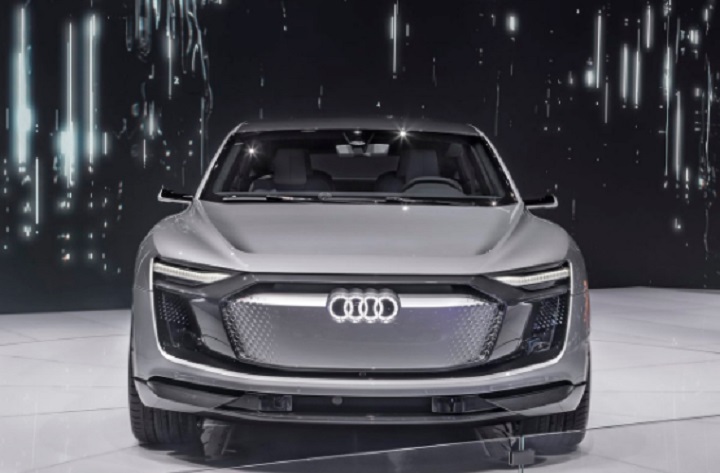The world is seeing a shift from traditional fossil-fuel and gas powered automobiles to cleaner, more sustainable electric vehicles. While in the beginning, the electric vehicle revolution may be just a pipe dream driven by Tesla’s (NASDAQ:$TSLA) popularity, it’s now looking more and more like reality as big-name automakers shift their attention on electric motor production.
One such company is well-known automobile manufacturer Audi (ETR:$NSU). The company is now reinvesting in its Brussels plant to prepare for the production of its new electricity-powered SUV, the Audi e-tron Quattro. New production planning — which will include the making of electric motors instead of internal combustion engines and batteries instead of fuel tanks, the company said — is currently well under way.
Changes include setting up new logistics at the front of the factory and implementing a battery assembly line at the back of the factory. While the car company isn’t making its own batteries — like Tesla — they will be producing battery modules and battery packs. Project manager production, Bertran Gunter, explains the process of the plant’s transformation in more detail:
“We plan to retain the same number of workers currently building the A1 in two shifts. Because the larger SUV has more production content than the smaller Audi A1, the workforce will still be running at full capacity. And the layout of the halls is also very convenient. Battery assembly will take place in one hall that is currently used for logistics. The main contractor there is Audi Toolmaking which is preparing all the equipment.”
Dr. Christian Allman, a battery specialists working with Gunter, explains that Audi’s new battery assembly line will be set with new benchmarks of safety and precision. This is because the battery in the e-tron Quattro will be integrated into the load-bearing structure of the car’s floor plan. Colleague Markus Flucke added that a series of new production technologies had to be developed to make this possible.
Audi’s efforts to produce this electric vehicle is extremely evident of just how much the automobile industry is changing. The company talks further in detail about the transition — specifically the shift from A1 production to its new SUV Quattro:
“Before production of the new SUV ramps up in Brussels — parallel to the run-down of the Audi A1, the successor to which will be built in Martorell, Spain — static reinforcement is required to the upper level, along with a step-by-step restructuring of the assembly line. The old line is giving way to a combination of an electrically driven suspended track and height-adjustable push-skids, split into a little more than 150 workstations.”
Audi’s e-tron Quattro will be one of the first electric vehicles to be produced by the company. Investors and consumers alike should watch out, as the e-tron Quattro is only the beginning of electric vehicle production as other big-name automakers such as Porsche (ETR:$PAH3), BMW (ETR:$BMW) and Mercedes (ETR:$DAI) are also developing electric vehicles.
The e-tron Quattro is expected to have a 310 mile-range, about a 275 miles-range when converted to real-world range, or EPA estimates. Pricing, as well as a release date for the vehicle, is expected to be released by the end of this year.
Featured Image: twitter










